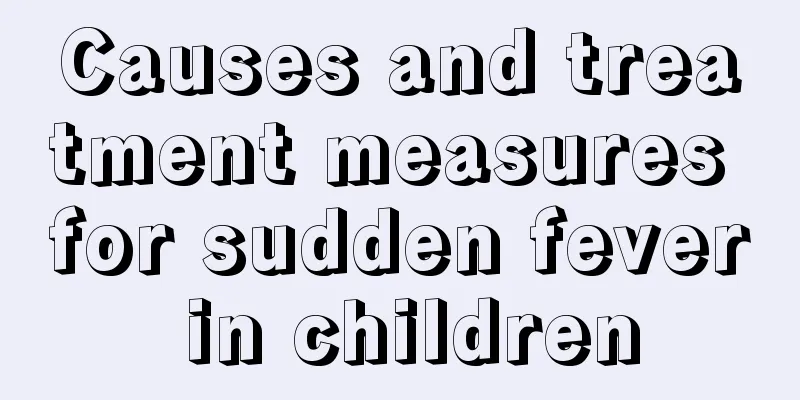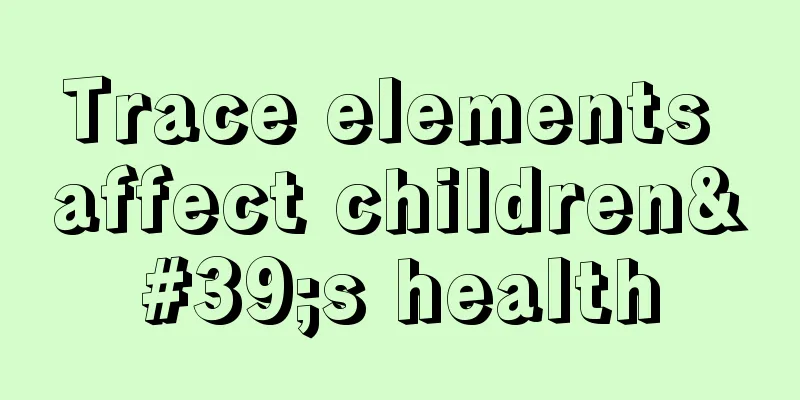Why do children have a runny nose?

|
Today's babies are the lifeblood of their parents. Even a small problem can make parents anxious and they don't know what to do. As parents, we must know the various reasons why children get sick. Only when you know the cause can you prescribe the right remedy. Nowadays, many children have runny noses for no reason, and many parents don’t know what’s going on. So why do children have runny noses? Let me give you a brief description below. Under normal circumstances, the human nasal mucosa is constantly secreting mucus to moisten the nasal membrane, moisten the inhaled air, and stick to the dust, microorganisms and microorganisms inhaled from the air. This is snot. A normal person secretes about several hundred milliliters of nasal mucus every day, but all of this mucus flows along the direction of the movement of the cilia of the nasal mucosa, to the posterior nasal aperture and into the pharynx. Due to evaporation and drying, it is generally not seen flowing out of the nasal cavity. The nasal mucosa of children has more blood vessels and secretions than adults. In addition, the nervous system's regulatory function on nasal mucosal secretion and ciliary movement is not yet fully developed. Children are not good at wiping their noses by themselves, so they often have clear nasal discharge. This is a normal physiological phenomenon and there is no need to worry. But other reasons cannot be ruled out. For example, 1. In the early stage of a cold, the discharge is clear watery or mucous, and purulent discharge may appear in the later stage of a cold. 2. Chronic rhinitis: The nasal discharge is mostly mucous. The amount can be more or less. 3. Allergic rhinitis: The patient has clear watery nasal discharge in large amounts, accompanied by sneezing and nasal itching. It can occur year-round or seasonally. Patients with allergic rhinitis may have asthma, especially children. 4. Chronic sinusitis: mostly mucopurulent secretions, bilateral or unilateral, accompanied by nasal congestion, dizziness, memory loss, etc. Unilateral sinusitis should be considered odontogenic sinusitis. 5. Nasal polyps may also cause clear nasal discharge, which may be accompanied by purulent nasal discharge when infected. Nasal congestion, dizziness, memory loss, etc. may also occur. 6. Children's secretions are relatively vigorous. If there is no other discomfort, it may be caused by cold air irritating the nasal cavity and no special treatment is required. Unilateral nasal congestion with blood in the mucus may be caused by foreign matter in the nasal cavity. The above are the reasons for runny nose in children summarized by experts. You can better determine the cause of your child's runny nose and prescribe the right medicine. Children's bodies are very fragile, so never give them medicine blindly without knowing the reason. So as to avoid causing any harm to the child. Usually, you should also pay more attention to your child's condition. If you feel unwell, you must seek treatment as soon as possible. I hope the above content is helpful to you. |
<<: What are the symptoms of cough variant asthma in children?
>>: What are the main symptoms of ADHD in children?
Recommend
What is the disease of children's abdominal twitching?
If your child's stomach twitches involuntaril...
What to do if the newborn is hot-tempered?
Everyone knows that babies who eat milk powder ar...
Red skin on child
We all know that when babies grow and develop, th...
What medicine is better for children with indigestion?
Children's gastrointestinal systems are not a...
Is meningitis serious in children?
What is meningitis? Patients often ask such quest...
What are the Chinese patent medicines for strengthening the spleen and stomach of children?
What food a child eats every day is very importan...
The fastest treatment for Ganji in children
Children's resistance is relatively weak, so ...
How should the hunger therapy be implemented during the milk aversion period?
Parents who have raised children often encounter ...
What to do if your child is too delicate
Children are the center of a family and everyone ...
What should I do if my child has phlegm in his throat?
When children are young, they always suffer from ...
What causes children to cough and have nosebleeds?
People often cough, the most common ones are cold...
What to do if a child has a hot bump on his head
Some babies will have heat bumps on their heads. ...
How do children remove blackheads?
Adult women are more likely to get blackheads. In...
What are the symptoms of a child's heart disease?
Children with heart problems are a problem that p...
Baby safety seat
Child safety seats are mainly designed to be safe...









